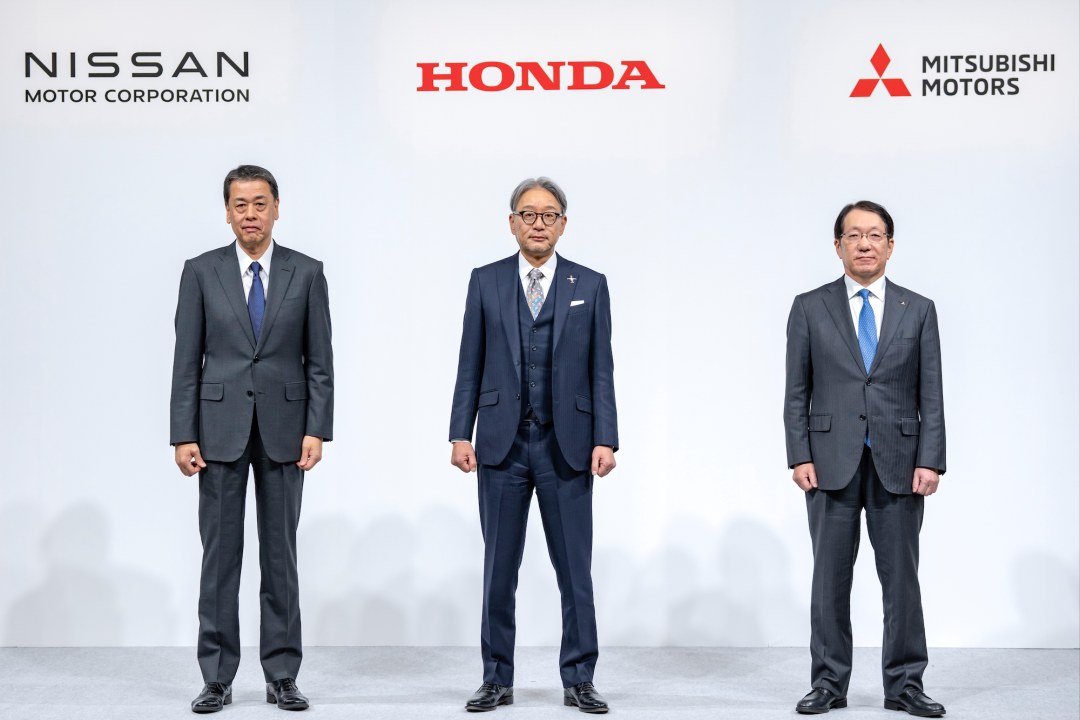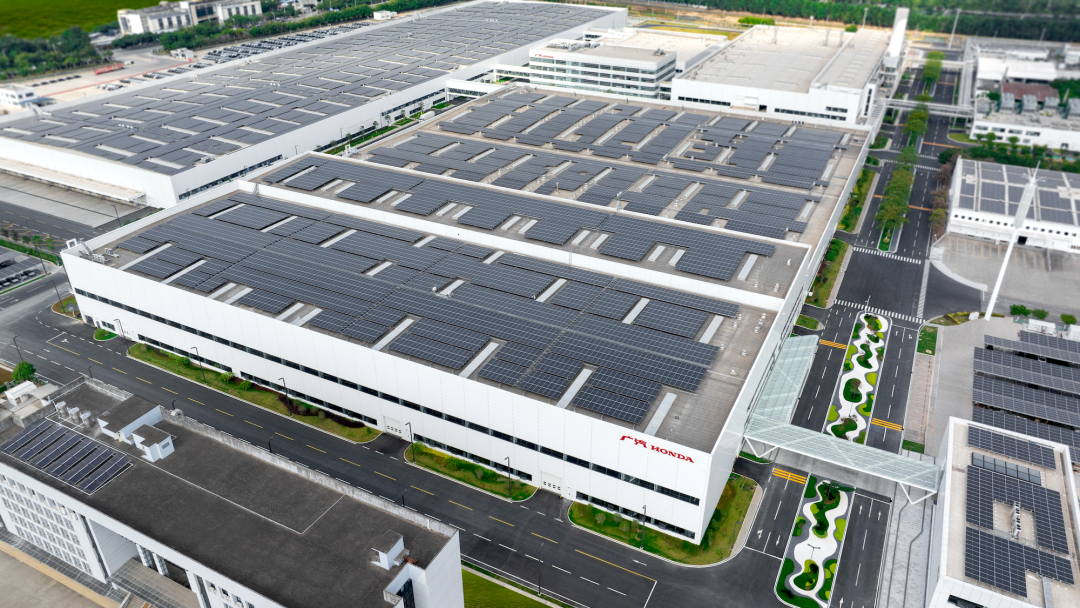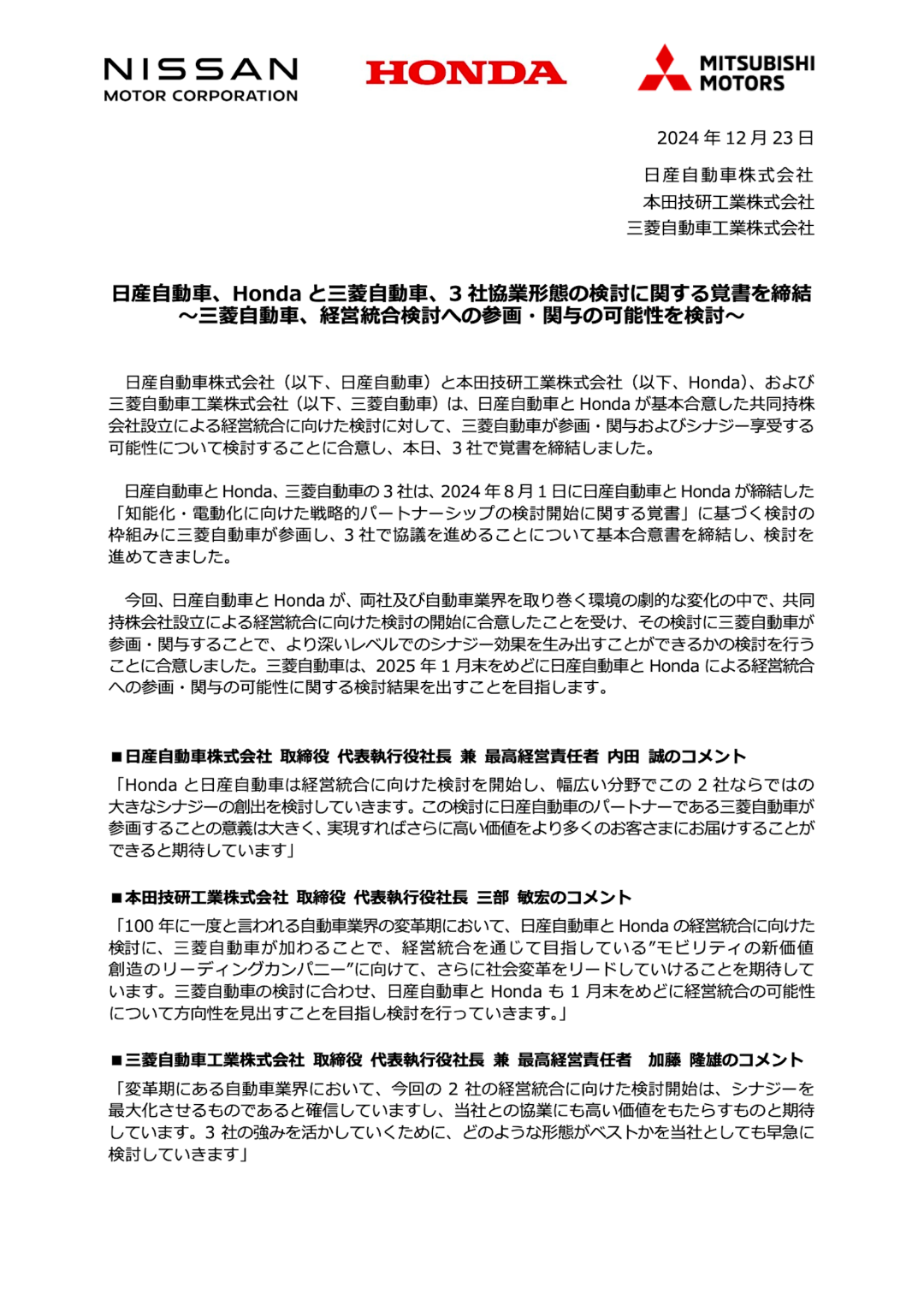The Decline of Japanese Auto Myths: The Desperate Merger of Honda and Nissan
![]() 12/24 2024
12/24 2024
![]() 612
612
Honda and Nissan, two titans of the Japanese automotive industry, have officially announced their planned merger for 2025. Amidst a widening gap with Toyota, the new entity emerging from this union aims to reclaim a top-three position among global automotive groups.
However, this strategic move underscores the difficulties and frustrations faced by Japanese automakers in the Chinese market, suggesting that the once-glorious era of Japanese cars in China may be drawing to a close.

Historically, Honda and Nissan have relied heavily on robust sales in the Chinese market to maintain their status among the world's top 10 automakers. Honda China once approached the milestone of selling 2 million vehicles annually, while the Chinese market represents Nissan's largest individual market globally.
Yet, with the rise of Chinese automotive brands and shifting consumer preferences, particularly the burgeoning market for electric smart cars, Honda and Nissan have encountered unprecedented challenges in China.

Data reveals that while Honda's global sales increased by 6% year-on-year to 3.98 million vehicles in 2023, sales in the Chinese market declined by 10% to 1.23 million vehicles. In the first 11 months of 2024, sales plummeted by over 30%.
Nissan's situation mirrors Honda's. Despite a slight 5% increase in global sales to 3.37 million vehicles in 2023, sales in the Chinese market dropped by 24% to 790,000 vehicles, failing to surpass the 1 million mark for the second consecutive year.
In China, independent brands have surged in popularity, with electric smart cars becoming the new darlings of the market. While Honda and Nissan have introduced electric vehicles, they have struggled to keep pace with the rapid market evolution.
Nissan has heavily relied on the Sylphy model in the Chinese market, whereas Honda, despite launching exclusive models like the e:N pure electric series, has struggled to reverse its declining fortunes.

In the face of adversity, Honda and Nissan's decision to merge represents an attempt to address market challenges through resource integration and economies of scale. However, it remains uncertain whether this union will truly salvage Japanese cars' fortunes in the Chinese market.
The new entity will confront significant pressure from Toyota and fierce competition from local Chinese brands. In the realm of electric smart cars, China has emerged as the world's largest market and a hotbed of technological innovation.
To make headway in this domain, Honda and Nissan must deeply integrate with the Chinese market, accelerating technological innovation and product development.
Moreover, the post-merger integration of production capacity and research and development poses a considerable challenge. Both Honda and Nissan grapple with overcapacity in the Chinese market. Effectively consolidating these resources to avoid waste and duplication will be a critical issue for the new entity.

For the Chinese market, the merger of Honda and Nissan may not elicit significant upheaval. Chinese consumers are accustomed to the dynamic automotive landscape, and the rise of independent brands has broadened their options.
However, for Japanese cars, this merger signifies an important turning point, marking the end of their golden era in the Chinese market and heralding a more challenging path ahead.
In conclusion, while the merger of Honda and Nissan appears to be a strategic maneuver for Japanese cars to address market challenges, it underscores the difficulties and frustrations faced by Japanese automakers in China. Whether this merger marks the beginning of a Japanese car revival or merely a helpless conclusion remains to be seen over time.
Nevertheless, it is certain that changes in the Chinese market and the future trajectory of Japanese cars will captivate the global automotive industry's attention.








